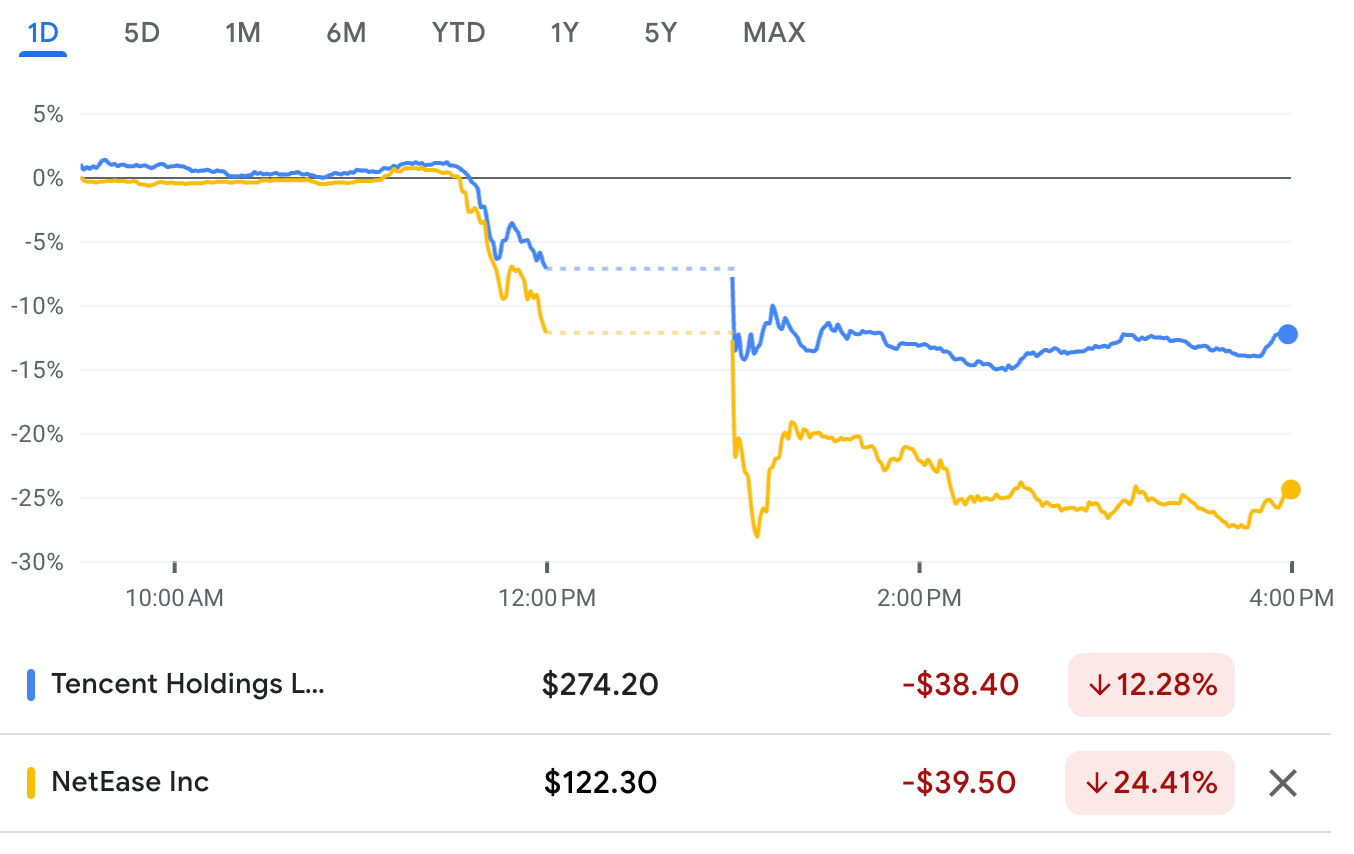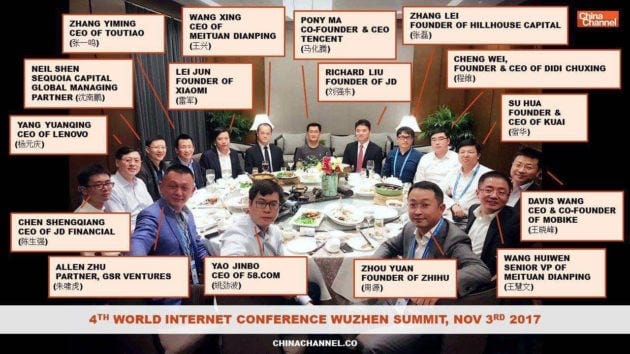Growth Dragons Weekly: Tencent Plummets 12% Amid New Chinese Gaming Rules While Its Revenue Surpassed By ByteDance
Here’s what happened in Growth Dragons this week:
Tencent Plummets 12%, NetEase Plunges 24% Amid New Chinese Gaming Rules
ByteDance Surpasses Tencent Revenue in 2023
Upcoming IPOs: Zhubajie and UBTech
SenseTime Shares Tanked After Founder’s Death
#1 Tencent Plummets 12%, NetEase Plunges 24% Amid New Chinese Gaming Rules
The Chinese Government threw a spanner in the works on Friday by proposing new rules on online gaming.
Perhaps the most impactful of these is Article 18, as translated by Google:
Article 18 [Restricting excessive use of games and high consumption] Online games are not allowed to set inductive rewards such as daily login, first recharge, and continuous recharge.
Online game publishing units shall not provide or condone high-priced transactions in virtual props in the form of speculation, auctions, etc.
All online games must set user recharge limits and announce them in their service rules. Pop-up warnings should be issued to users for irrational consumption behavior.
Given the competitiveness of the gaming industry, it's common for games to entice players to return, play longer, and, ideally, spend more on in-app purchases.
This new rule implies that gaming companies might earn less revenue, as some measures designed to encourage player spending might need to be removed or toned down.
Consequently, the share prices of Tencent and NetEase, two major gaming companies in China, dropped by 12% and 24%, respectively.
However, we believe this reaction is exaggerated. Taking Tencent as an example: it generated approximately 32.7 billion yuan from domestic games in Q3 2023, which accounts for about 21% of its total revenue. A 12% decline in share price seems to suggest an expectation that Tencent could lose about 57 billion yuan from its total revenue. That is larger than the entire domestic gaming revenue and more! This is an overcorrection.
Moreover, the proposal is still a consultation paper and has not been finalized into law. The market likely reacted strongly because it revived fears of regulation, contrary to the Chinese government's previous indications that the tech regulatory period had ended. China has been approving new games for several months until this consultation paper was released.
Article 18 is just one of the numerous gaming rules in the draft proposal. Most of these rules are not unusual, and some even present positive aspects for Tencent and NetEase.
For example, Article 6 states that to publish games in China, more than 8 full-time editors and publishers with publishing and related professional and technical qualifications recognized by the national publishing authority are required. This number does not include the legal representative of the company. This rule favors larger players like Tencent and NetEase.
Additionally, Article 51 encourages Chinese gaming companies to explore overseas markets, suggesting that the government wants these companies to grow.
Yet, the media has predominantly focused on Article 18. We think that Chinese stocks are vulnerable because they have been declining for three years, and any hint of bad news tends to accelerate selling. This is especially true when it triggers investors' lingering fears of tech regulation. Even if the correction seems overdone, sentiment seems to prevail over logic.
#2 ByteDance Surpasses Tencent Revenue in 2023
Still focusing on Tencent, there's more unsettling news: ByteDance has experienced a remarkable surge in sales, surpassing US$110 billion. This positions ByteDance to overtake Tencent, which is projected to generate US$86 billion in revenue.
Just six years ago, the founder of ByteDance had only recently launched Douyin. At that time, the app wasn't very popular, and he was better known as the CEO of TouTiao, a more well-known news app than Douyin. In this photo, captured during a dinner event, the founder of ByteDance is seen sharing a table with other prominent figures in China's internet industry, including Pony Ma. Few could have predicted that he would lead ByteDance to challenge Tencent’s dominance.
Keep reading with a 7-day free trial
Subscribe to Growth Dragons to keep reading this post and get 7 days of free access to the full post archives.





